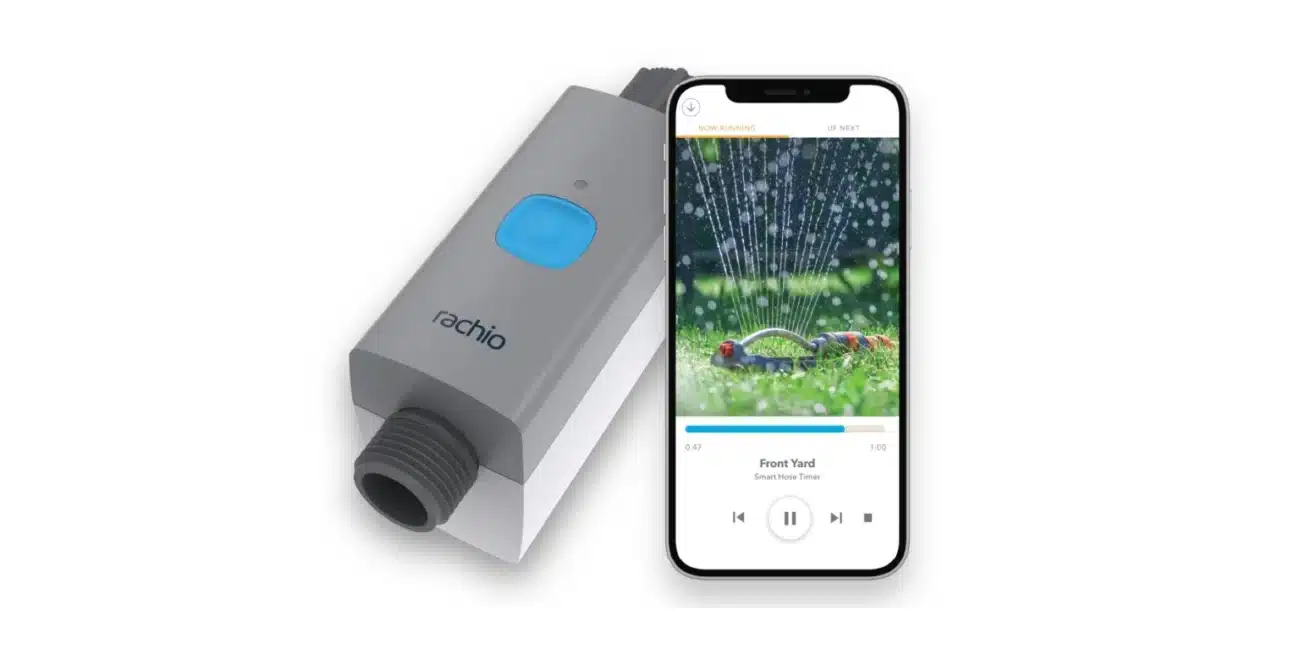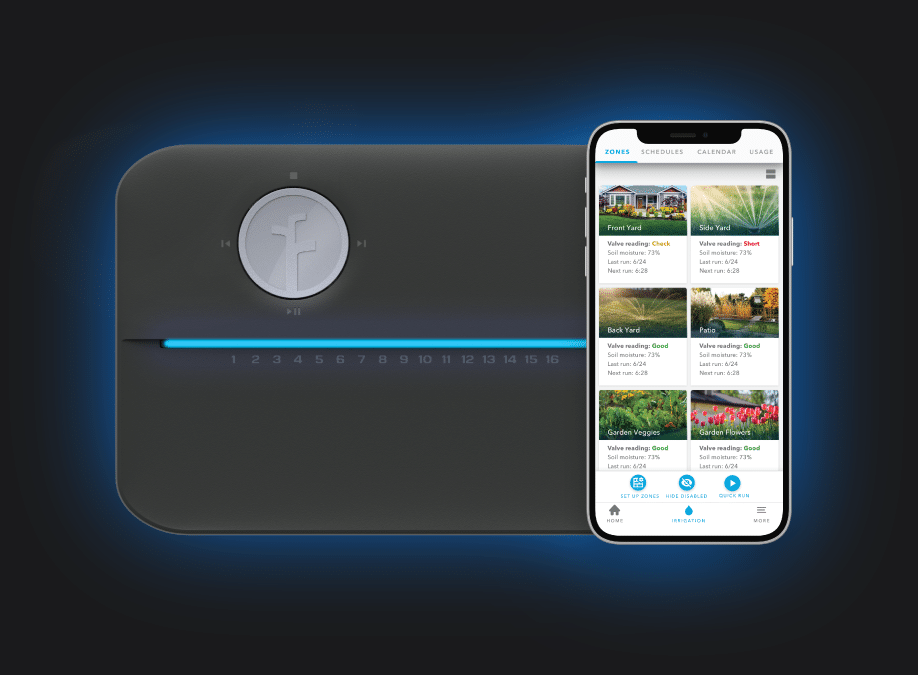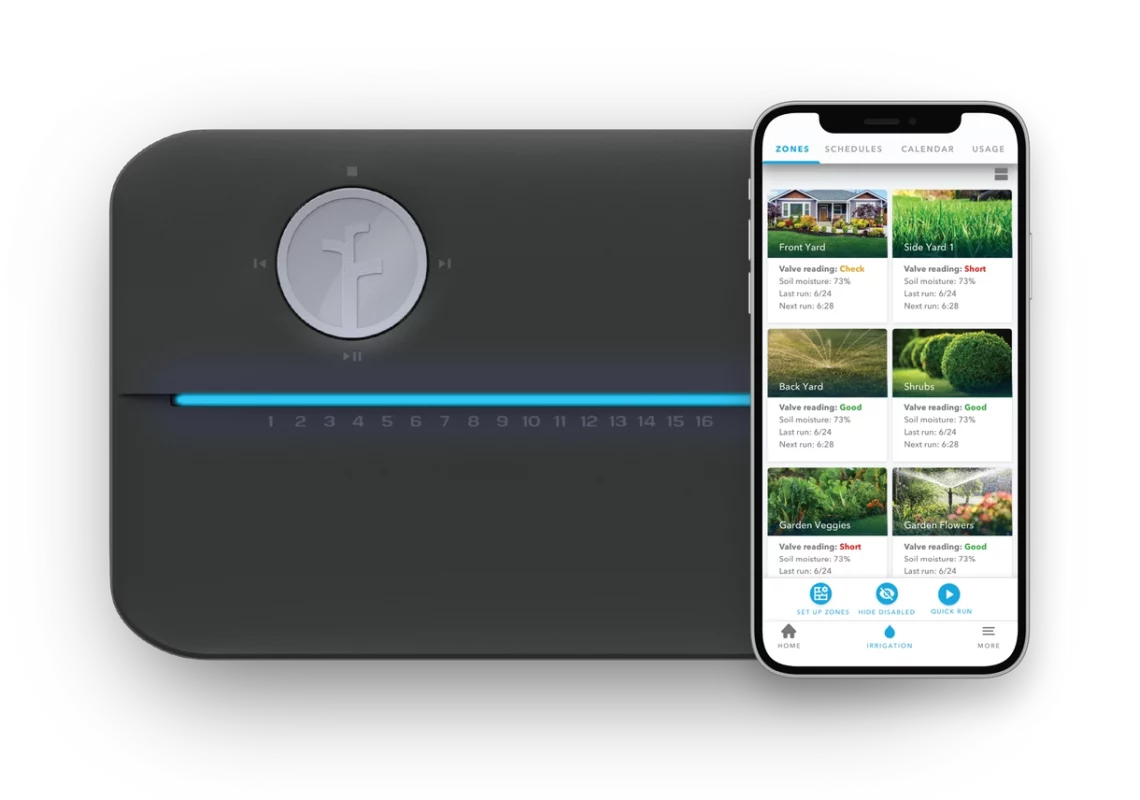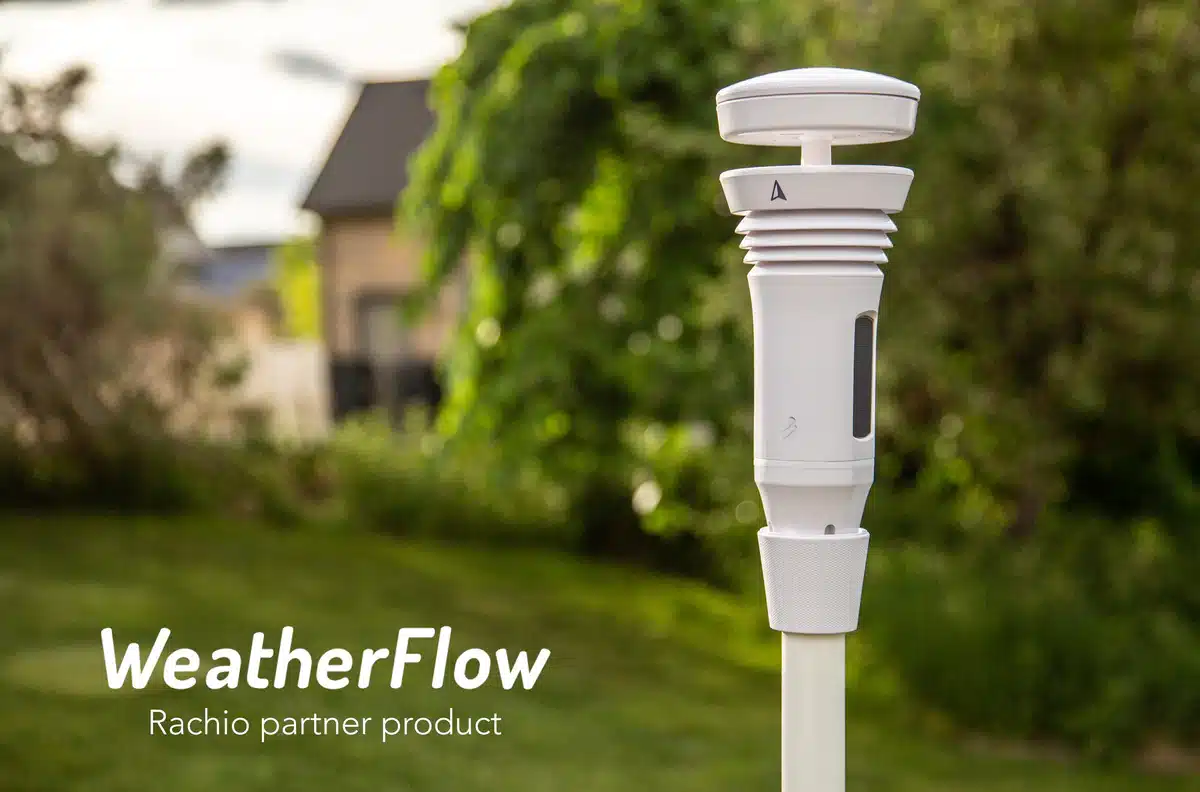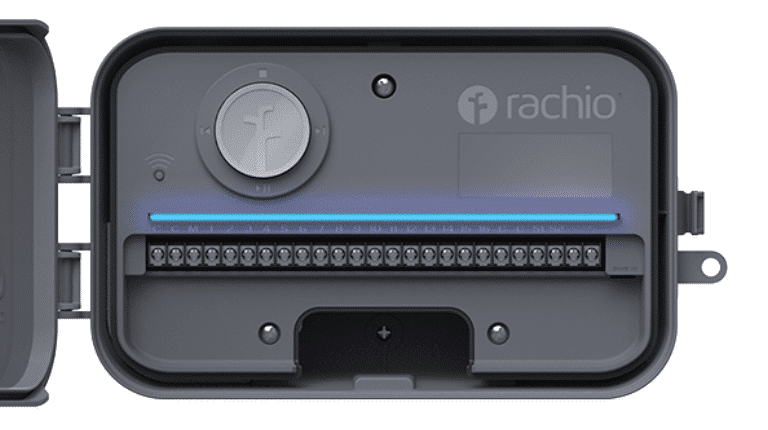Why Install A Smart Wi-Fi Irrigation Controller for your Home?
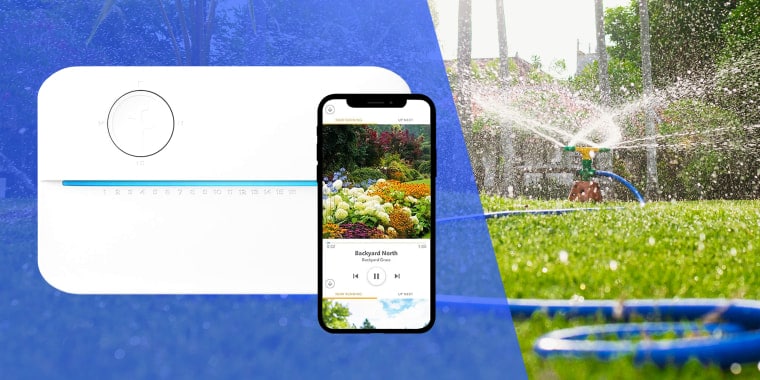
Smart irrigation controllers
Smart irrigation controllers tailor watering schedules and run times automatically to meet specific landscape needs. These controllers are a proven technology to improve outdoor water use efficiencies.
Technology improves irrigation efficiency
Up to 70% of residential water use in the Valley occurs outdoors, yet much of that water is wasted due to over-watering landscapes. There are two primary reasons for this:
- Many homeowners do not adjust their irrigation schedules to match landscape water needs based on the season.
- No matter how efficient an irrigation controller’s watering schedule is, it still does not take into account changing weather conditions – specifically evapotranspiration (ET) and rainfall. ET is the amount of water lost from the soil through evaporation plus the plant’s water loss, both of which are dramatically affected by weather conditions.
Traditional vs. “smart” controllers
Irrigation equipment manufacturers developed this smart irrigation technology to address the issues above and to improve irrigation efficiencies.
| Features | Traditional controller | “Smart” controller |
|---|---|---|
| Automated watering system | X | X |
| Automatic shutoff when raining | X | |
| Automatically determines watering schedule based on weather conditions | X | |
| Does not require seasonal monitoring/changes | X | |
| Uses up to 20% less water | X | |
| EPA WaterSense-labeled | X |
How it works
These systems use weather information and site conditions to determine how much water to apply and when to irrigate. Weather-based smart controllers draw upon a variety of climatic conditions. Some controllers utilize historic weather data supplemented with on-site weather data. Other controllers rely on a subscription service to download ET values daily. Soil moisture sensor smart controllers rely on the amount of moisture in the soil, measured by buried probes, to determine irrigation schedules.
Once these systems are installed and programmed correctly, they usually require little additional monitoring and will irrigate the landscape at peak efficiency at appropriate times.
Get answers to frequently asked questions about the smart irrigation controller.
Proven results
Tests by the Irrigation Association (IA) and the International Center for Water Technology at California State University – Fresno, have shown smart irrigation controllers to save up to 20% more water than traditional irrigation controllers.
These results, and the potential they pose for saving water if widely used, recently prompted the Environmental Protection Agency (EPA) to select smart irrigation controllers as one of the first technologies endorsed by the EPA’s WaterSense program, the water equivalent of the Energy Star program.



